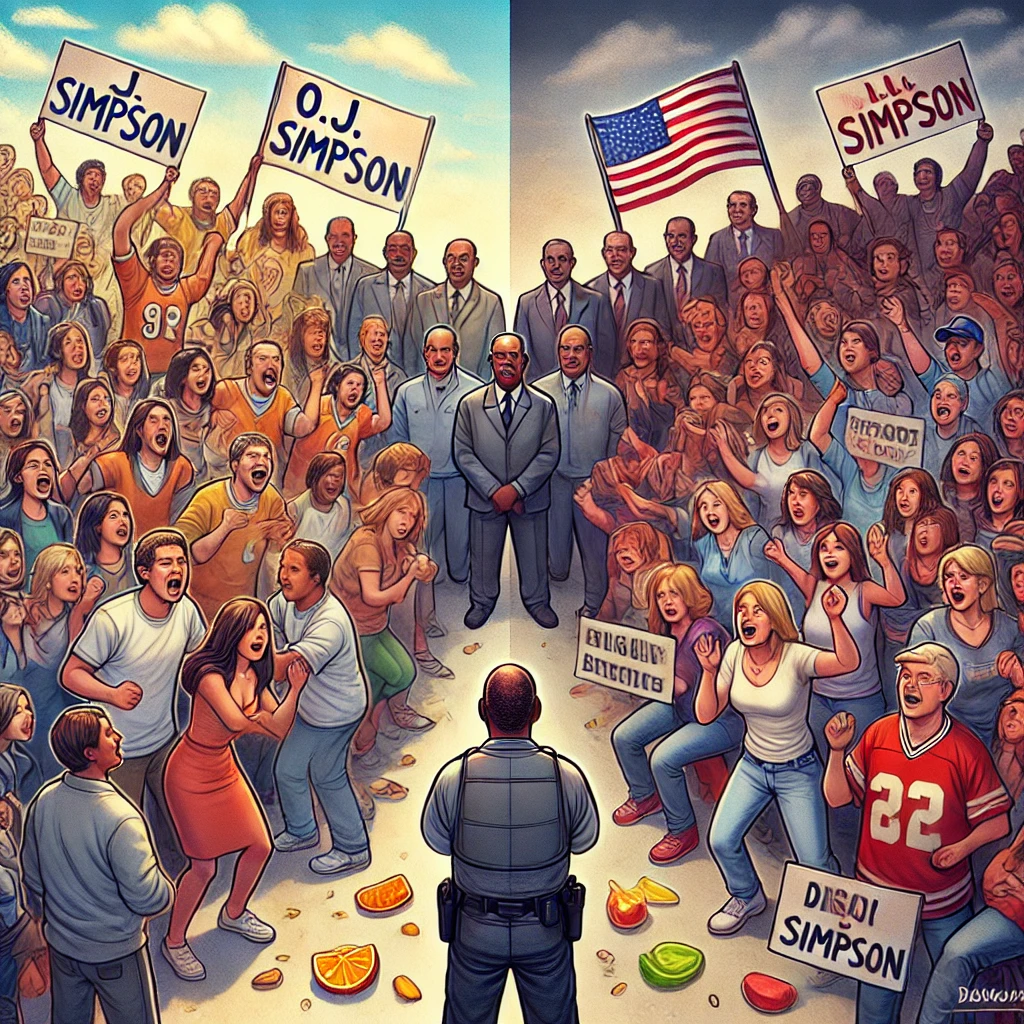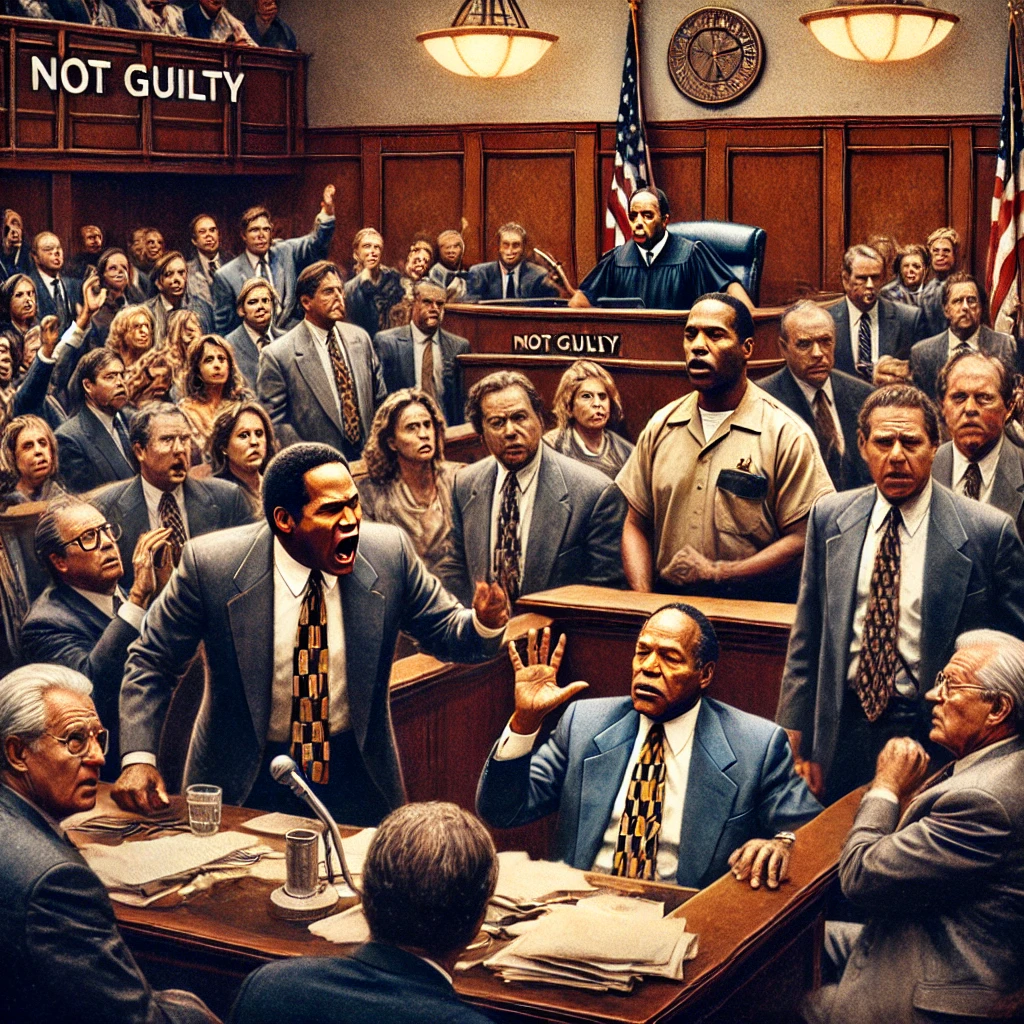On October 3, 1995, one of the most sensational trials in American history concluded with a jury finding former football star O.J. Simpson not guilty of the murders of his ex-wife, Nicole Brown Simpson, and her friend, Ronald Goldman. This verdict not only captivated the nation but also sparked widespread debate about race, domestic violence, and the criminal justice system, leaving a lasting impact on American society.

The Background of the Case
The murders of Nicole Brown Simpson and Ronald Goldman took place on June 12, 1994, outside Brown’s home in Los Angeles. O.J. Simpson, a former NFL star and Hollywood actor, was quickly identified as a suspect. The subsequent car chase involving Simpson, which was broadcast live on television, captivated millions of viewers and set the stage for a media frenzy that would follow throughout the trial.
The prosecution’s case was built around forensic evidence, including DNA samples and a history of domestic violence. However, Simpson’s defense team, known as the “Dream Team,” argued that the evidence had been mishandled and that there were significant issues related to racial bias and police misconduct. The defense effectively used the courtroom as a platform to raise questions about systemic racism in the LAPD, turning the trial into a larger societal issue.

A Trial that Captivated the Nation
The trial was marked by its unprecedented media coverage, with live broadcasts bringing the proceedings into living rooms across America. The courtroom drama, filled with high-profile testimonies, dramatic arguments, and emotional moments, became a spectacle that captured the public’s attention. The trial’s characters, including Simpson, prosecutor Marcia Clark, and defense attorney Johnny Cochran, became household names.
Public opinion about the trial was deeply divided along racial lines. For many African Americans, Simpson’s acquittal was seen as a triumph against a biased legal system, while a significant portion of white Americans viewed the verdict as a miscarriage of justice. This division highlighted existing racial tensions in the United States and underscored the complexities of race relations.
The Verdict and Its Aftermath
On October 3, 1995, after a lengthy trial that lasted more than eight months, the jury delivered its verdict: not guilty. The announcement sent shockwaves throughout the country, leading to celebrations among Simpson’s supporters and outrage among others. The verdict was a pivotal moment that reignited discussions about race, domestic violence, and the effectiveness of the legal system.

In the years following the trial, O.J. Simpson’s life took a tumultuous turn. Although he was acquitted of murder, he faced civil litigation related to the deaths of Brown and Goldman. In 1997, a civil jury found him liable for wrongful death, ordering him to pay $33.5 million in damages. Simpson’s later legal troubles, including a robbery conviction in 2008, further complicated his public image.
A Lasting Impact on American Society
The O.J. Simpson trial left a profound and lasting impact on American society, influencing public discourse on race, gender, and the legal system. It brought issues of domestic violence into the spotlight, prompting conversations about the prevalence of abuse and the need for systemic change. The trial also changed the landscape of media coverage for legal proceedings, setting a precedent for the way high-profile cases would be reported and consumed by the public.
The cultural ramifications of the trial extended into various forms of media, inspiring documentaries, films, and television shows that examined its complexities and implications. The series American Crime Story: The People v. O.J. Simpson reignited interest in the case, exploring the cultural and racial dynamics that shaped the trial and its aftermath.
Conclusion
The conclusion of the O.J. Simpson trial on October 3, 1995, remains one of the most significant moments in American legal and cultural history. The not guilty verdict not only ended a highly publicized trial but also opened the door to critical discussions about race, justice, and societal values. As we reflect on the legacy of this sensational trial, we recognize its enduring impact on American society and the ongoing conversations it continues to inspire regarding justice, equality, and the complexities of the human experience.
